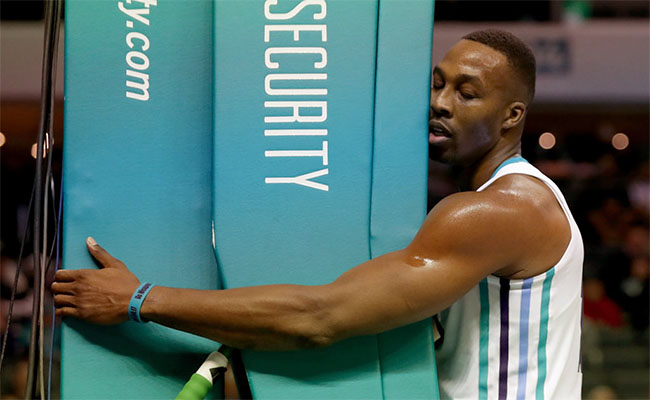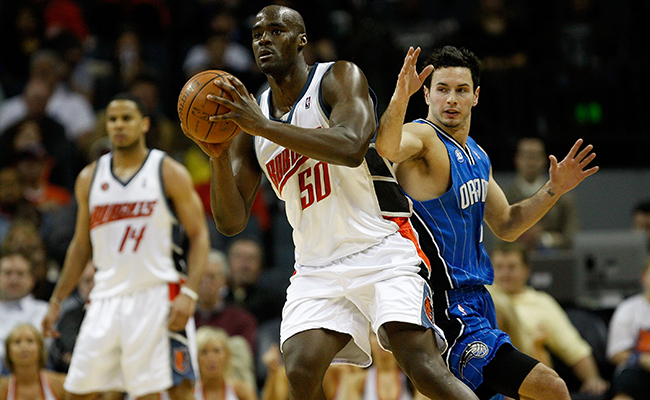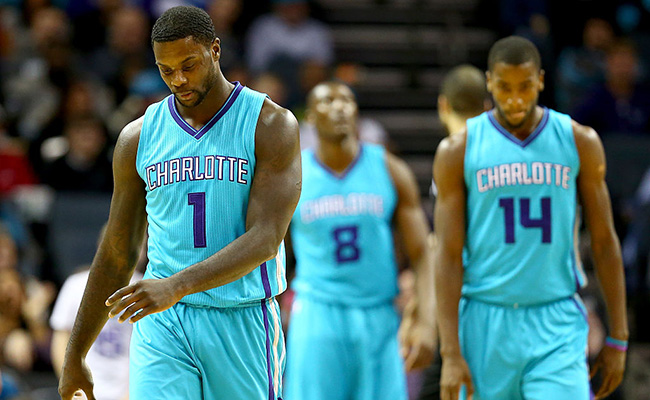
What’s an NBA team to do when the calendar hits January and there seem to be only two choices — to tank or not to tank? For the Charlotte Hornets and their 13-23 record so far this season, a decision needs to be made soon.
To the casual NBA follower, the obvious answer would be to tank. They’ve seen what happens when teams are stubborn enough to stick with the plan they entered the season with. Franchises get dubbed “treadmill” teams, not good enough to compete for a title and, at the same time, not bad enough to get a top 5 pick.
So why should the Hornets keep the core together when the team is built more for a title run in 2008 instead of 2018, its best player is 5’11, and there’s only one man on the roster shooting better than 40 percent from three-point range? The answer is devastatingly simple in that the damage done long-term from tanking might sour the Charlotte area off the NBA entirely.
Charlotte and the NBA have a sordid yet interesting history. Live in the area enough and one of the locals will tell you about their brief dalliance with the Charlotte Hornets of the late 80s through the 2002 season. The team was the first professional franchise in the city with the rabid fanbase acting as something similar to what Thunder and, to a lesser extent, what Warriors fans are like in the present. So, what changed?
The answer is George Shinn, and the acrimonious, bitter split between the city of Charlotte that saw this franchise uproot itself and park itself in New Orleans. So the blood, sweat, and tears that fans invested in this team for nearly 15 years were gone in an instant. Fans refused to support a team that had prime Baron Davis as a centerpiece. In that last playoff run in 2002, the team couldn’t draw flies, much less fans to support the product at the end.
So when it was announced on Dec. 18, 2004 that the NBA would be officially returning to Charlotte spearheaded by an ownership group led by Bob Johnson, fans would flock back to the NBA in droves, right? Not exactly, as mistakes were made on multiple fronts. First, the city gave the franchise an arena that residents didn’t want to give to Shinn, much less a new group that wouldn’t carry the name of the team that broke the city’s heart.
Then comes the unfortunate draft luck that’s associated with the Bobcats name — Emeka Okafor instead of Dwight Howard, Raymond Felton and Sean May instead of Chris Paul or Deron Williams, Adam Morrison instead of Brandon Roy. With every failed draft pick comes a diminished level of trust in the franchise to do the right thing and build a contender.

The “dark ages” of the Charlotte Bobcats weren’t all bad, though. For starters, you had a plucky small forward named Gerald Wallace that made going down to see those teams worth the price of admission. Wallace, through sheer guts and whatever hackneyed cliche used for determination, managed to turn himself into an All-Star. The city of Charlotte had an All-Star for the first time since the days of Glen Rice and Baron Davis.
That same year, the Charlotte Bobcats made the playoffs as a No. 7 seed, facing the Orlando Magic. It wasn’t a pretty series, Dwight Howard dominated the interior against guys like Theo Ratliff and Boris Diaw, while Jameer Nelson wiped the floor with Raymond Felton and a rookie year D.J. Augustin. The Bobcats were dispatched from whence they came, but there was hope in that the Bobcats seemingly had a solid core built up and this would be the first of many playoff appearances in the future.
Unfortunately, everything good about that 2009-10 team went sour the following season. Larry Brown was fired around Christmas, Wallace was traded at the deadline, and new team owner Michael Jordan decided to take the franchise in a new direction.
Enter the lockout-shortened 2011-12 season, in which the Bobcats were led by Augustin, a bloated Boris Diaw, Tyrus Thomas, and rookies Bismack Biyombo and Kemba Walker.
The end result of that campaign: seven wins.
Yes, seven wins and 59 losses. When people think of ineptitude, they may think of the Sixers, but the real cardholders lie in Charlotte. The highlight of that season didn’t even happen on the court, it happened when a then-68-year-old Paul Silas shoved Tyrus Thomas into a locker.
However, you knew Michael Jordan and executive Rich Cho had a plan to bottom out the franchise in order to draft Anthony Davis. Which, in theory is a good plan, unless the lottery balls don’t bounce your way. Instead of getting the franchise player that NBA fans in Charlotte desperately craved, instead lady luck stuck it to Charlotte by handing Davis over to New Orleans.
Think about it from the perspective of your average NBA fan in Charlotte. Not only was your first NBA love stolen from you by New Orleans, but the chance of staying low and building with Anthony Davis was taken by the same city. It’s like Charlotte is Charlie Brown and New Orleans is Lucy, continually taking the football at the last possible moment to continually make you look stupid. Any chance of trusting the process would forever be tainted by the fact that no matter what would happen, it’d be ruined somehow anyway.
Things didn’t really improve for the NBA in Charlotte until Steve Clifford was hired as the franchise’s head coach. The organization changed its culture, brought in Al Jefferson and made the playoffs in his first year as coach. Sure LeBron and Wade dispatched the team in four games that year, but Kemba Walker made strides and proved to be a franchise cornerstone. On top of which, the Hornets name was coming back, so what’s not to like about this team going forward? As the next season proved, the answer would be everything.
The offseason of 2015 was ominous because the team made every effort to sign Gordon Hayward to a deal that would bring him to Charlotte. However, Hayward was a restricted free agent, so the Jazz simply matched the deal and left the Hornets scrambling to find the future backcourt running mate of Walker. For reasons that made sense at the time, the Hornets signed Lance Stephenson to a team-friendly deal. The backcourt combo of Walker and Stephenson would be the backcourt of the future in Charlotte, or so we thought.

Adding Lance to the Hornets turned out to be a disaster, as Stephenson didn’t mesh with the rest of the organization on the way to a 36-win season. There were always rumors of him clashing with coaches, players, and team officials, the magic Stephenson had in Indiana wouldn’t translate in a new home and he was shipped away for pennies on the dollar in the form of Spencer Hawes and little else in the next offseason.
There is more to parse, such as the rumored draft day deal for Frank Kaminsky, the (justified) loss of the 2017 All-Star Game to New Orleans, and more. The problem for this franchise lies in the fact that for many reasons, the people of Charlotte have lost their faith in the NBA as a whole.
Even if the Hornets decide to strip the roster down for pennies on the dollar, what do they gain in a market that barely acknowledges their presence on a game-by-game basis? There is the potential for more lower-tier first round picks for a franchise that has an inability to hit pay dirt on them to this point, but it takes some gymnastics to sort through the wreckage. The Hornets are in limbo and stand more to gain by standing pat and hoping this season with this cast is an aberration.
On top of the fact that this team is competing for eyeballs in a town with a team that has Cam Newton. Intentionally losing games in a market where the other team is routinely competing for playoff spots only hastens the race to irrelevance with even fewer people showing up to games.
What’s more is that the Sixers have been the only real evidence that tanking actually works. Boston, Houston, Golden State and San Antonio are all shining examples that a team can compete daily and still build a title contender. All it takes is the right management and a steady hand when it comes to coaching, the Hornets have at least proven to have one of the two.
So staying the course in Charlotte, while not entirely popular nationally, makes the most sense for everyone involved. The truth is, if the Hornets decided to tank, by the time the fans came back around to see the fruits of the tanking, they’ll be watching it on cable — because the franchise will be in Seattle.






